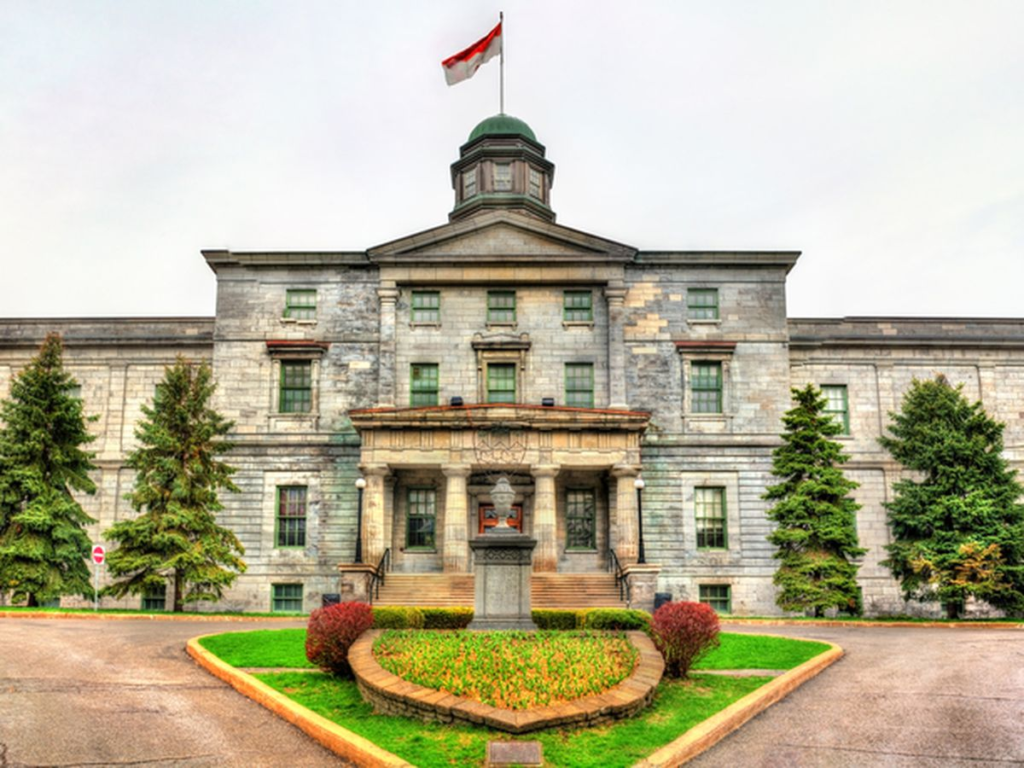If you’re considering pursuing a master’s program abroad, McGill University might already be on your radar. Known for its prestigious reputation, global rankings, and diverse academic opportunities, McGill offers world-class education in the heart of Montreal, Canada. But before you start dreaming about your future at McGill, there’s one crucial piece of information you need to understand: the McGill University acceptance rate.
Now, you might be wondering why this matters. Well, the McGill University acceptance rate isn’t just a number; it’s a reflection of the competition you’ll face when applying. It helps you strategize your application process, understand the level of academic rigor expected, and gauge your chances of admission. After all, knowing how competitive McGill is will allow you to craft a more targeted, successful application.
In this post, we’ll dive deep into McGill University acceptance rate., breaking it down for both undergraduate and graduate programs, and comparing it with other top Canadian universities. By the end, you’ll have a clear understanding of how to approach your McGill application with confidence.
Key Takeaways:
- The McGill University acceptance rate is competitive, typically around 50%, but varies by program.
- Tuition fees can range from $18,000 to $75,000 CAD, depending on your program and student status.
- McGill offers substantial opportunities for financial aid, scholarships, and bursaries to help alleviate costs.
- The admission process takes a holistic approach, considering academic performance, extracurriculars, and other personal achievements.
Understanding McGill University Acceptance Rate

What Is the McGill University Acceptance Rate?
The McGill University acceptance rate is the percentage of applicants who are admitted to a university out of the total number of applications received. For McGill University, this figure can vary depending on the program and level of study (undergraduate vs. graduate). As a general guideline, McGill is known for being highly selective, with acceptance rates typically ranging between 40% and 50% for undergraduate programs. Graduate programs can be even more competitive, depending on the field of study.
Current Acceptance Rate for 2024
For undergraduate programs, the McGill University acceptance rate for 2024 is approximately 46%, according to the latest data from McGill’s admissions portal. This means that out of every 100 applicants, about 46 are admitted to the undergraduate programs.
For graduate programs, the rate varies significantly depending on the discipline. For instance:
- Engineering: Acceptance rates tend to be lower due to the high volume of applications.
- Arts & Humanities: Acceptance rates are slightly higher compared to more competitive fields like law and medicine.
How Does McGill Compare with Other Canadian Universities?
It’s helpful to understand how McGill University acceptance rate stacks up against other top universities in Canada. Here’s a quick comparison of McGill University acceptance rate.:
| University | Undergraduate Acceptance Rate |
|---|---|
| McGill University | 46% |
| University of Toronto | 43% |
| University of British Columbia (UBC) | 52% |
| University of Montreal | 45% |
| McMaster University | 58% |
As you can see, McGill is one of the more selective institutions in Canada, alongside other highly competitive universities like the University of Toronto.
Factors Influencing McGill University Acceptance Rate

Understanding the McGill University acceptance rate is only part of the picture. To truly improve your chances of acceptance, it’s crucial to understand the various factors that influence the admissions process. The admissions team at McGill evaluates applicants holistically, considering academic performance, test scores, extracurricular activities, and more. Let’s break down the key elements of McGill University acceptance rate that impact your chances.
Academic Excellence: The Power of Your GPA
At McGill, academic performance is one of the most important factors. This means that having a strong GPA is essential to stand out among other applicants. McGill’s rigorous programs require high academic standards, so maintaining a competitive GPA is vital. For undergraduate programs, competitive applicants typically have GPAs of 3.5 (out of 4.0) or higher, with the most competitive applicants often having GPAs closer to 3.8 or above. For graduate programs, the academic expectations are even higher, and most successful applicants will have strong undergraduate records in their respective fields of study.
Standardized Test Scores: Are They Required?
McGill University does consider standardized test scores like the SAT, ACT, and GRE, but their weight in the application process depends on the program. For undergraduate applicants, McGill generally requires SAT or ACT scores for certain programs, while other programs may waive these requirements. For graduate programs, the GRE is typically required for specific fields, such as engineering or science. That said, test scores are just one part of the equation. McGill looks for balanced applicants with strong academic achievements and well-rounded profiles.
Holistic Review: The Role of Extracurriculars and Essays
While grades and test scores are vital, McGill University also employs a holistic admissions process. This means they’ll evaluate your extracurricular activities, personal essays, and recommendation letters to get a sense of who you are beyond your academics.
- Extracurriculars: Leadership roles, volunteer work, and involvement in clubs or societies can demonstrate that you are a well-rounded individual who brings value to the campus community.
- Essays: Your personal statement or statement of purpose is an opportunity to showcase your motivation, future goals, and why McGill is the right fit for you. A compelling essay can be a game-changer in an otherwise competitive application.
Diversity Goals: McGill’s Commitment to International Students
McGill University values diversity and seeks to admit students from a variety of backgrounds and countries. International students are an important part of the university’s community, and McGill actively encourages applications from across the globe. This commitment to diversity means that applicants from countries like India can have an equal shot at gaining admission, provided they meet the academic and personal requirements.
McGill University Requirements for International Students

When applying to McGill University, international students face specific requirements that can differ from domestic applicants. Let’s break down the key academic, language, and immigration requirements for international applicants.
Academic Requirements
As an international student, your academic background will need to meet McGill’s standards. This typically includes:
- Undergraduate Applicants: You must have completed secondary school (12th grade or equivalent) with high marks in relevant subjects. McGill may require specific course prerequisites depending on your chosen program.
- Graduate Applicants: You will need to have completed a relevant undergraduate degree with strong academic standing. For some programs, professional experience may also be considered.
Language Proficiency: TOEFL/IELTS Scores
If English is not your first language, you’ll need to demonstrate your proficiency through standardized tests like TOEFL or IELTS. McGill typically requires a minimum TOEFL score of 86 (with at least 20 in each section) or an IELTS score of 6.5 overall. Some programs may have higher requirements, especially for graduate studies.
Credential Evaluations and Equivalencies
McGill requires that your academic credentials be evaluated to ensure they meet Canadian standards. This means you may need to provide course descriptions or syllabi for review. McGill uses the World Education Services (WES) for credential evaluation. This step is crucial to make sure that your degree or diploma is recognized by Canadian education authorities.
Visa and Immigration Considerations
Once you receive your offer of admission, international students will need to apply for a study permit (student visa) to study in Canada. The process involves proving that you have the financial resources to support yourself during your studies and that you will leave Canada upon completion of your program. It’s important to start this process early, as obtaining a visa can take several weeks.
McGill University Application Deadlines

Applying to McGill University requires careful attention to deadlines, especially as they can vary depending on the program and your status as an international student. Knowing these deadlines ensures that you don’t miss out on important opportunities, such as scholarships or early admission.
Application Timelines for Undergraduate and Graduate Programs
The application deadlines for McGill University differ based on whether you’re applying for undergraduate or graduate studies. Here’s a quick breakdown of the key dates you need to keep in mind:
| Program | Application Deadline | Intake |
|---|---|---|
| Undergraduate | January 15th | Fall (September) |
| September 15th | Winter (January) | |
| March 1st | Summer (May) | |
| Graduate | December 1st – February 1st (varies) | Fall (September) |
| September – October (varies by program) | Winter or Spring |
Important Dates for International Students
For international applicants, it’s crucial to keep track of extra timelines related to document submission, visa processing, and other international requirements. McGill strongly advises that international students apply at least 6 months before their intended start date to account for visa delays and credential evaluations.
Key Tips for Meeting Deadlines:
- Start Early: Begin gathering your documents and preparing your application as early as possible.
- Track Deadlines: Set reminders for each part of the application process, including document submission, application fees, and visa application deadlines.
- Prepare for Delays: Visa and credential evaluation processes can sometimes take longer than expected, so give yourself plenty of buffer time.
McGill University Application Fee

Before you submit your application to McGill University, you’ll need to consider the application fee. This fee is required for processing your application and is an important part of the application process for both domestic and international students.
Breakdown of Application Fees
McGill charges an application fee for both undergraduate and graduate programs. Here’s a quick breakdown:
| Program Type | Application Fee (CAD) |
|---|---|
| Undergraduate Programs | 107 |
| Graduate Programs | 120 – 150 |
Payment Methods and Fee Waiver Options
McGill University accepts various payment methods for the application fee, including:
- Credit or debit cards (VISA, MasterCard, etc.)
- Bank transfers
However, fee waivers are available for students facing financial hardships. If you meet specific eligibility criteria, such as financial need or being from a low-income background, you may be able to apply for a waiver to have the application fee reduced or waived entirely.
Note: Keep in mind that while fee waivers are available, they are not automatically granted. You’ll need to apply and provide supporting documentation to prove your eligibility.
Additional Costs:
Along with the application fee, there might be additional costs associated with the application process, such as:
- Sending transcripts and test scores
- Credential evaluation (if required)
- Language proficiency test fees (TOEFL/IELTS)
McGill University Fees
When planning to study at McGill University, it’s important to understand the full range of costs involved. Tuition fees at McGill vary based on your program of study, whether you are a domestic or international student, and whether you are pursuing an undergraduate, graduate, or MBA program. Beyond tuition, students must also account for living expenses, books, and other miscellaneous costs.
Tuition Fees for Undergraduate, Graduate, and MBA Programs
Here’s a breakdown of the tuition fees for undergraduate, graduate, and MBA programs at McGill University:
| Program Type | Tuition Fee (CAD) | Additional Costs |
|---|---|---|
| Undergraduate (Domestic) | ~ $18,000 – $25,000 per year | Books, supplies: ~$1,000 per year |
| Undergraduate (International) | ~ $45,000 – $55,000 per year | Books, supplies: ~$1,000 per year |
| Graduate Programs (Domestic) | ~ $15,000 – $30,000 per year | Books, supplies: ~$1,500 per year |
| Graduate Programs (International) | ~ $20,000 – $40,000 per year | Books, supplies: ~$1,500 per year |
| MBA Program | ~ $60,000 – $75,000 (total) | Books, supplies, living: ~$20,000+ |
Additional Costs: Living Expenses, Books, and Materials
In addition to tuition fees, McGill students should budget for:
- Living Expenses: On average, living in Montreal can cost between $15,000 and $18,000 per year, depending on your lifestyle and accommodation choices.
- Books and Materials: Students typically spend about $1,000 to $1,500 per year on books and materials.
- Health Insurance: International students are required to purchase health insurance, which costs approximately $1,000 per year.
Financial Aid, Scholarships, and Bursaries
McGill University offers a variety of financial aid options:
- Merit-based scholarships: These are awarded based on academic performance and can range from $5,000 to $12,000 per year.
- Need-based bursaries: McGill provides bursaries to assist students who demonstrate financial need. The amount varies depending on the student’s circumstances.
McGill University Canada MBA Program

McGill’s Desautels Faculty of Management is renowned for its rigorous MBA program, offering a combination of theoretical knowledge and real-world business skills. The McGill MBA program stands out for its diverse cohort, global reputation, and strong connections to the business world.
Overview of the McGill MBA Program
McGill’s MBA program is designed to provide a comprehensive education in business, emphasizing leadership, entrepreneurship, and international business. The program structure includes core courses in management, economics, marketing, finance, and strategy, along with opportunities for specialization.
- Program Length: Typically 1 to 2 years (full-time), depending on your specialization and whether you choose to pursue an internship.
- Class Size: Approximately 100-120 students per cohort, fostering a collaborative learning environment.
Admission Requirements for the McGill MBA
The McGill MBA program has competitive admission requirements. Here’s a quick overview:
| Requirement | Details |
|---|---|
| Academic Background | A Bachelor’s degree (minimum 3 years) in any discipline |
| GMAT or GRE Scores | Required (average GMAT score: 680) |
| Work Experience | Minimum 2 years of full-time professional experience |
| English Proficiency | TOEFL (minimum 100) or IELTS (minimum 7.0) |
| Essays and Interview | Required for shortlisted candidates |
Career Opportunities and Alumni Success Stories
McGill’s MBA program boasts a high employment rate upon graduation, with over 90% of graduates finding jobs within 3 months of completing their studies. Graduates work in a variety of industries, including consulting, finance, technology, and entrepreneurship.
Alumni Success:
Many McGill MBA graduates go on to become leaders in global organizations. Some have even started their own successful companies, contributing to McGill’s strong reputation as a source of top-tier business talent.
Key Statistics on McGill University
Understanding the statistics surrounding McGill University can give you a clearer picture of what to expect when applying and what the institution offers in terms of academic quality, resources, and overall student experience. Let’s break down some key statistics about McGill that highlight its standing in the academic world.
Key Facts and Figures About McGill University
| Category | Details |
|---|---|
| Total Enrollment | ~40,000 students (undergraduate + graduate) |
| International Students | 30% of the total student body |
| Student-Faculty Ratio | 18:1 |
| Research Funding | Over $500 million annually in research funding |
| Annual Research Output | More than 3,000 publications per year |
| Number of Countries Represented | 150+ countries |
| Global Ranking | Top 35 in the world (QS World University Rankings 2024) |
| Programs Offered | Over 300 programs across various disciplines |
McGill’s Academic Excellence
McGill is often ranked among the top universities globally. It is recognized for its high research output, attracting significant funding for academic projects. The university’s commitment to fostering academic excellence is reflected in its diverse and dynamic student body, with international students making up 30% of the total enrollment.
McGill’s faculty-to-student ratio of 18:1 indicates a relatively personalized learning environment, providing students with access to top-tier professors and a wealth of academic resources.
Latest Trends in McGill University Admissions
Like many universities, McGill’s admissions process has evolved over the years. Understanding the latest trends in admission policies, changes in application numbers, and how global events may impact admissions is crucial for prospective students planning to apply in 2024.
Recent Changes in McGill Admissions Policies
- Holistic Review: McGill has increasingly adopted a holistic review process, especially for graduate programs and highly competitive undergraduate programs. This means they not only consider academic performance but also take into account extracurricular achievements, letters of recommendation, and personal statements.
- Test-Optional Policy: In response to the pandemic, McGill has made standardized tests like the SAT and ACT optional for many undergraduate applicants. However, applicants can still submit scores to strengthen their application.
- Increased International Students: McGill continues to attract a diverse, global student body, with more students coming from outside Canada. This trend has been particularly noticeable in its graduate programs.
Trends in Application Numbers and Acceptance Rates
Over the past few years, McGill has seen a significant increase in applications, especially from international students, which has made the admissions process even more competitive.
| Year | Undergraduate Applications | Graduate Applications | Acceptance Rate |
|---|---|---|---|
| 2023 | ~40,000 | ~10,000 | ~50% |
| 2022 | ~35,000 | ~9,500 | ~52% |
| 2021 | ~30,000 | ~8,500 | ~55% |
Impact of Global Events on Admissions
- COVID-19: The global pandemic significantly affected McGill’s admission trends. For example, virtual interviews and online submissions became more common. McGill has continued to adapt by streamlining its virtual learning environment.
- Geopolitical and Economic Trends: Events such as changes in immigration policies and shifts in global economic conditions also impact the number and type of applicants. However, McGill remains committed to attracting top talent from around the world, ensuring a diverse and inclusive student body.
FAQs
1. What is the current acceptance rate for McGill University?
The McGill University acceptance rate typically hovers around 50%, though it can vary depending on the program. Some programs, especially highly competitive ones like those in medicine, engineering, or law, tend to have lower acceptance rates, while others might have slightly higher rates. It’s essential to remember that McGill employs a holistic admissions process, considering not just academic performance but also extracurricular achievements, personal statements, and recommendation letters, all of which can play a significant role in your application.
2. What are the McGill University requirements for international students?
McGill University has specific requirements for international students, which include possessing a valid passport and visa, and demonstrating English proficiency through standardized tests like TOEFL or IELTS unless you have studied in an English-speaking institution. You’ll also need to present a recognized equivalent of a Canadian secondary school diploma or bachelor’s degree, depending on whether you’re applying for undergraduate or graduate programs. In addition, some graduate programs may require standardized test scores (such as GRE or GMAT) and may involve an interview process.
3. How much are the McGill University fees for international students?
The tuition fees for international students at McGill University vary depending on the program and level of study. For undergraduate programs, fees generally range from $45,000 to $55,000 CAD per year, while graduate programs typically cost between $20,000 and $40,000 CAD annually. The MBA program at McGill is one of the more expensive options, with total fees ranging between $60,000 and $75,000 CAD for the entire program. In addition to tuition, international students should budget for living expenses, books, insurance, and other incidentals, which typically add up to an additional $15,000 to $20,000 per year.
4. What is the application deadline for McGill University?
McGill University has different deadlines depending on whether you’re applying for undergraduate or graduate programs. For undergraduate programs, the application deadline for Fall intake (September) is typically January 15th for international students and March 1st for Canadian students. For the Winter intake (January), international applicants must submit their applications by September 1st, while Canadian students have until November 1st. Graduate program deadlines vary by department, but most are due between December and March, so it’s important to check the specific deadlines for your program.
5. Is there an application fee waiver available for McGill University?
Unfortunately, McGill University does not generally offer application fee waivers. The application fee for most programs ranges between $100 to $150 CAD, depending on the course. However, applicants facing financial hardship may be eligible for a fee waiver under certain circumstances. Be sure to check McGill’s official admissions page for any updates or specific conditions regarding fee waivers, as these may vary by program or year.
Conclusion
Understanding the McGill University acceptance rate, application requirements, and fees is an essential step in planning your higher education journey. As one of the top universities globally, McGill offers an outstanding educational experience, a vibrant international student community, and a diverse range of programs. With its competitive admissions process, it’s important to prepare thoroughly and present a well-rounded application.
As you prepare for the next steps, keep these insights in mind, and make sure to reach out to McGill’s admissions team for McGill University acceptance rate and any specific questions regarding your application. Ready to take the plunge? Start your McGill University application today!




